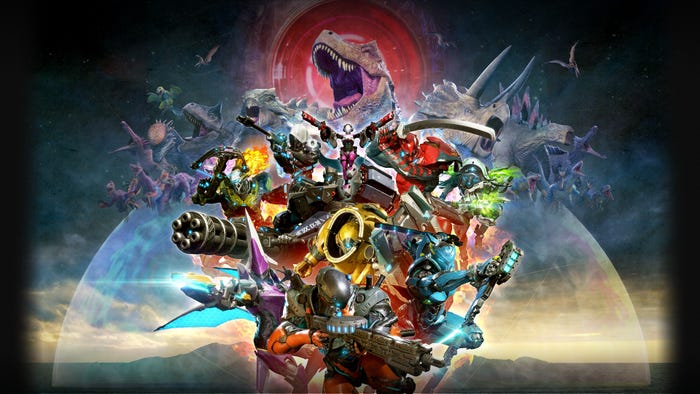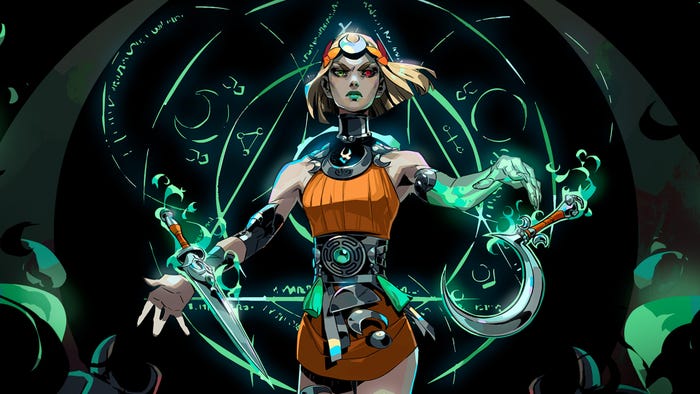
Featured Blog | This community-written post highlights the best of what the game industry has to offer. Read more like it on the Game Developer Blogs.
Five Lessons Learned as Editor at Failbetter Games
Five lessons learned as a newcomer to the industry: perfection is impossible, writing is hard, writing is wonderful, limit how often you offer your opinion, and forking hell, imposter syndrome is nasty - but trust your team if not yourself.

I'm pretty new to the games industry. My role perhaps only exists because of the very particular nature of Failbetter's games and my refusal to take "No, of course we don't need an editor. No, seriously. Stop making that noise." for an answer. I come from traditional publishing. The transition from solitary keyboard hermit to part of a games team has been fun, sometimes painful, and taught me a great deal.
1. Stop aspiring to perfection
Perfection is unachievable, we all know this. It is possible to rework a piece of writing forever – but with decreasing improvements (or worse) as time passes. When editing writing for games, the point of diminishing returns is reached quickly – in part because fixes can be easily implemented post-publication. (I have developed an unhealthy addiction to fixing typos pointed out in support tickets.) In the time it would take to make one perfect piece, we could make several nearly-perfect pieces. Editors are perfectionists; we have to be. But I've had to learn to let go – 'good enough' is exactly that.
2a. Fucking hell writing is hard why would anyone want to write?
A secret: most editors can write, at least to some degree. A lot even aspire to. A good editor will not write someone else's story – they'll get it out of their system elsewhere. At Failbetter, I've been forced to write. And it's been illuminating.
Writing is hard. Being edited is harder. It hurts – I can't help but take editing notes personally. My work's inadequacy is my inadequacy.
But as an editor, I'm continually saying: I wouldn't bother doing this if the writing wasn't worth it. It's never personal, never an assessment of a person's skill. Where I'm most vigorous, it tends to be because I've seen something inspiring, and want to make certain it glows. And I'm under a time pressure – I almost never give positive notes, because obviously the rest is good or I'd edit it. Knowing all this, being edited still hurts.
I'm never going to be 'nice' to the writers here – their work is good enough to deserve robust feedback. (Apparently I'm 'brutal'.) But writing, and being edited, has been a good reminder that while writers need to have thick skin, I shouldn't test it too hard.
2b. Fucking hell writing is wonderful why doesn't everyone want to write?
Not much of a secret: a good editor is invisible. If you can see signs of our work in the finished product, we've screwed up. It's hard to take pride in work that I, at least, consider entirely someone else's. I'm helping the writer say what they intended, forcing them to produce their best. So – getting to write something, seeing it out in public, not having it universally despised… if the cold, dead heart of an editor is capable of getting the warm fuzzies, mine did. It was worth the pain of being edited, for sure. 10/10 would write again.
3. Opinions are like mites, everyone's face is covered in them.*
*I'll leave fact and sense checking to whoever edits this.
It's exciting to see what others have been working on. We share work in progress, offer things up that we're unsure of. I love this; it's important – it keeps the team enthused, can be reassuring – and in my case, out at the far end of the content team, it helps me feel connected to other aspects of the company. Stops me feeling an outsider.
But it's far too easy to start being helpful. Fourteen people giving their opinion on a piece of art, or how a button should look or work – is worse than no feedback at all. Most of us will have no skill in the area in question. And sometimes I have even offered 'feedback' just so I'm not seen to be repeating the 'Wow!' of the person commenting before me – not that I'd admit that at the time.
Each team member will have spent time considering and formulating their opinion. And the person whose work it is will have wasted time listening, staring in horror, and then dismissing most of it. Offer an opinion sparingly; sometimes a thumbs up emoji is enough.
What? I should tie this back to the face mites thing? Well, I have an expressive face. To avoid giving an undesired opinion, I have taken to abruptly scowling for no reason. If I'm caught abruptly scowling, I can deny correlation.
4. Multiskilling is vital. It's OK to be a specialist too.
Working in a team requires a degree of multiskilling. See Lottie's point three, here. This can be terrifying. But what's needed is enough knowledge for clear communication – to ensure that work isn't based on assumptions and misunderstandings. Ask potentially embarrassing questions; rephrase what you've been told, to clarify you've actually got it. (Most people here don't bite.) Discard pride. Learn what you can, don't try to hide the gaps in your knowledge.
5. In rebuttal of point four: Everyone's brilliant. Everyone's a polymath. Except you.
Failbetter is a wonderful place to work, and cheesy-crap aside, it's a privilege to work alongside so many talented people. And by a privilege, I mean: it's terrifying, and has, on occasion, kept me awake with the fear that at some point people will realise I'm entirely redundant.
Yes, it's that topic: imposter syndrome.
I'm at a company where the producer can and does write. Where the tech team leave me fumbling for a dictionary pretending I can keep up. HR does art. Art does writing. Writers edit. Coders do UI and art and animation. The analyst designs. I'm not sure there's anything the Creative Director can't do (except art), and what he can do he does in several languages. And so on and so on. And that's just the work skills – these people have extraordinarily diverse hobbies and talents.
I, in contrast, rearrange words a bit so they sound a little more euphonious. Catch the odd typo. Old dog, one trick – that the company survived without before I arrived. Panic. PANIC!
Imposter syndrome is a fucker.
The thing is: I trust the team absolutely. Except for their opinion of the value I add to the company. Which is an oddly egotistical exception. And I've spoken to others at Failbetter – I'm not alone in worrying I'm unneeded. Which is obviously ridiculous in these people's cases – these people I've spoken to are core members, vital in every way and…
Ah.
So – if you're prone to that voice – even if you can't crush it yourself: if you trust and admire the rest of your team; trust their opinion of your work. You're here; you're needed.
Read more about:
Featured BlogsAbout the Author(s)
You May Also Like













